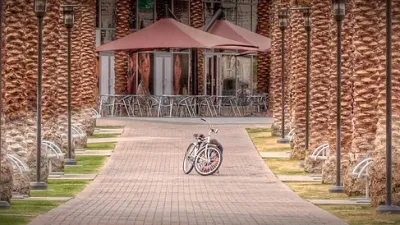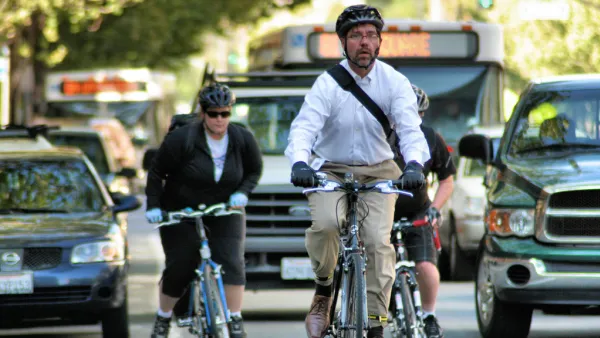This week, the website Walk Score announced the results of its expanded Bike Score evaluation. With more than double the amount of cities than initially ranked, the usual favorites (Minneapolis, Portland), were joined by some surprises.

"Compiled from a data set that includes bike infrastructure, hilly terrain, number of bikers on streets and more," Bike Score has expanded their evaluations to 25 U.S. cities and 11 Canadian cities following the new metric's launch in May. The additional cities surveyed were selected as a result of voting conducted during National Bike Month. As Jocelyn Milici Ceder at Walk Score notes, "[t]he top 10 voted on cities (for which we could obtain bike data) plus 5 additional cities are now scored."
Even with the expanded rankings, no U.S. city was deemed worthy of the top category of "biker's paradise." There has been movement at the top of the rankings, however. Boulder is the new top bikeable city with a score of 86. Minneapolis, who topped the initial list, fell to second place, and Portland, whose score of 70 was enough to earn it second place in the inagural rankings fell all the way to seventh place. Fort Collins, Ann Arbor, Eugene, and Tempe all received higher scores than what some consider to be America's best bike city.
FULL STORY: A Few Surprises in New Bike Scores

National Parks Layoffs Will Cause Communities to Lose Billions
Thousands of essential park workers were laid off this week, just before the busy spring break season.

Retro-silient?: America’s First “Eco-burb,” The Woodlands Turns 50
A master-planned community north of Houston offers lessons on green infrastructure and resilient design, but falls short of its founder’s lofty affordability and walkability goals.

Delivering for America Plan Will Downgrade Mail Service in at Least 49.5 Percent of Zip Codes
Republican and Democrat lawmakers criticize the plan for its disproportionate negative impact on rural communities.

Test News Post 1
This is a summary

Test News Headline 46
Test for the image on the front page.

Balancing Bombs and Butterflies: How the National Guard Protects a Rare Species
The National Guard at Fort Indiantown Gap uses GIS technology and land management strategies to balance military training with conservation efforts, ensuring the survival of the rare eastern regal fritillary butterfly.
Urban Design for Planners 1: Software Tools
This six-course series explores essential urban design concepts using open source software and equips planners with the tools they need to participate fully in the urban design process.
Planning for Universal Design
Learn the tools for implementing Universal Design in planning regulations.
EMC Planning Group, Inc.
Planetizen
Planetizen
Mpact (formerly Rail~Volution)
Great Falls Development Authority, Inc.
HUDs Office of Policy Development and Research
NYU Wagner Graduate School of Public Service



























